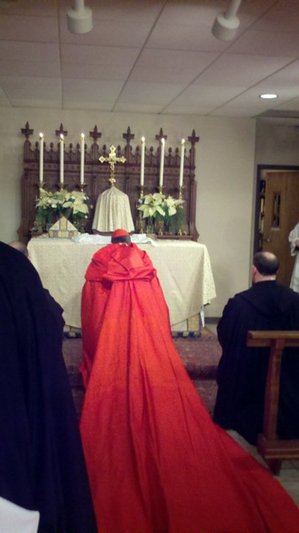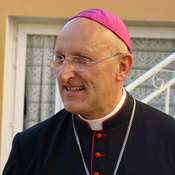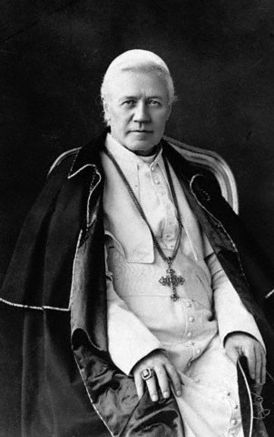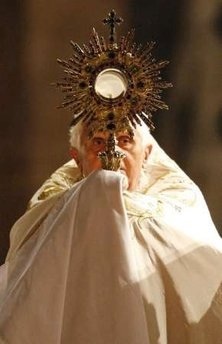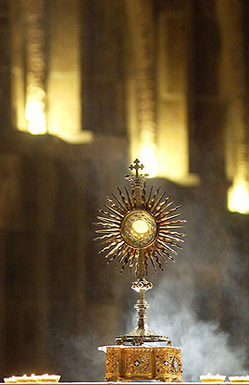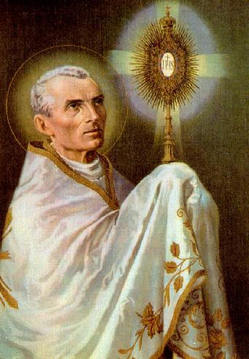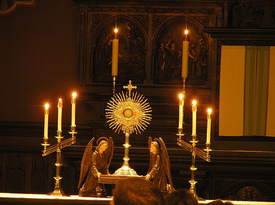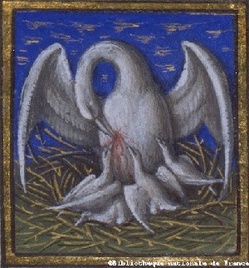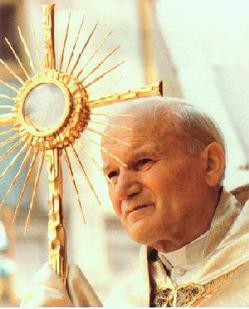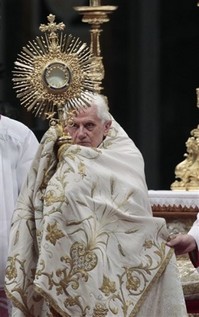
Among a certain crowd of priests, religious and laity you will hear that Adoration and Benediction of the Blessed Sacrament is no longer an appropriate method of prayer: "Vatican II changed all that..." or they'll say "That's ol'time religion." One priest even told me that Adoration of the Blessed Sacrament is cookie worship. Really? Giving praise to God is outdated? Adoration of the Holy Name is no longer in vogue? The God who created you is not worship and made known? None of this reflects my Catholic faith!
I am somewhat certain that those who claim Adoration and Benediction of the Blessed Sacrament neither know the Commandments (to worship God), the Tradition of the Church, the documents of the Second Vatican Council nor the post Conciliar work of Popes Paul, John Paul and Benedict. It is safe to say that these people who reject the the practice of a Holy Hour are the same who who haven't had a good formation in the faith or the Lex Orandi tradition.
Perhaps we all should recall what the Servant of God Pope Paul VI said in Mysterium Fidei,
The Catholic Church has always displayed and still displays this latria that ought to be paid to the Sacrament of the Eucharist, both during Mass and outside of it, by taking the greatest possible care of consecrated Hosts, by exposing them to the solemn veneration of the faithful, and by carrying them about in processions to the joy of great numbers of the people (56).
